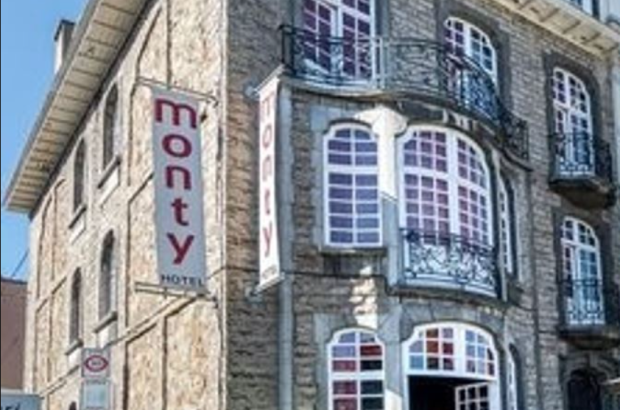- Daily & Weekly newsletters
- Buy & download The Bulletin
- Comment on our articles
Women and children evicted from migrant squat
A group of about 30 migrant women and six children have been evicted from a squat at the site of the former Hotel Monty on Avenue Brand Whitlock in Woluwe-Saint-Lambert.
Police carried out the eviction early on Tuesday morning and the Committee of Undocumented Women said it was conducted “with a lot of intimidation”.
“The women and children, including an infant, were not allowed to take their personal belongings on the bus,” said Benoît Peeters, a volunteer for the Committee of Undocumented Women.
“Workers will be responsible for collecting them later and bringing them back [and] we don't know whether the social housing centre is really a stable and permanent solution.”
But mayor Olivier Maingain (Défi) told Bruzz that the eviction went smoothly and “without incidents”.
Maingain had issued a decree in early May to rehouse the residents of Hotel Monty in an empty wing of the Fedasil centre in his municipality and he said the women and children were taken there via buses.
“Municipal staff are on site to provide social assistance to the residents,” the mayor said.
The former hotel in Woluwe-Saint-Lambert had been occupied by the undocumented women and children since January.
The owner of the hotel initiated the eviction process through the courts, but a planned eviction in early February was postponed after protests by activists.
Then, a possible move to the social housing complex was contested by Fedasil on the grounds that these were undocumented migrants, for which the state agency had no jurisdiction.
The case eventually came before the Council of State, but the council said the case was outside of its jurisdiction and so the case went back to the justice of the peace.
Eventually, the eviction order was obtained after all, which allowed for the move to social housing.
In a similar action, about 40 undocumented immigrants - mostly women and children - were evicted from a building belonging to the CSC Enseignement trade union in Saint-Gilles.
Both evictions have prompted sharp criticism from collectives such as the Committee of Undocumented Women.
“The Belgian government's policy of not accepting and regularising immigrants has led to repeated deportations of women, men, children and newborn babies,” the collective said.
“Many of these people have been staying in Belgium for years and working on the black to make ends meet. The struggle of undocumented migrants is a long-standing struggle of mobilisation and self-organisation. Their living conditions are totally invisible.”
According to the collective, the only solution to give undocumented migrants a dignified existence is a collective regularisation of sans-papiers in Belgium.
“But this crucial issue of regularisation is not considered at all by the political class,” said the collective.
“On the contrary, repression is getting harsher, deportations are increasing and the living conditions of these people are becoming more precarious. A roof over your head is a right, and dignity is a necessity.”


















